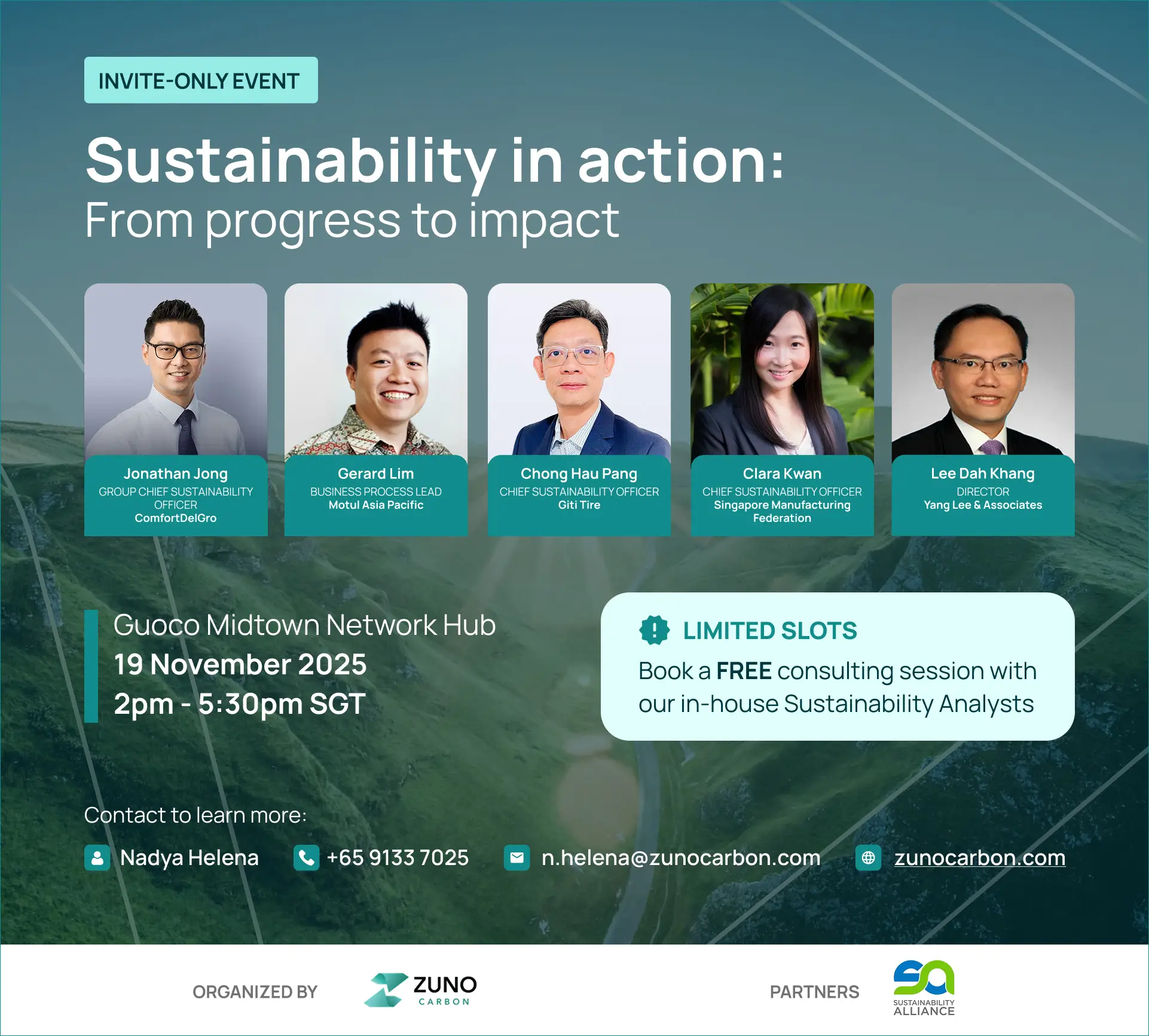The global situation today highlights the need for sustainable and ethical business practices. As consumers, employees, and investors increasingly demand long-term sustainability, companies are pushed to rethink their strategies. Slow, traditional planning methods are being replaced by fast, data-driven strategies. These strategies cut problem-solving time from weeks to hours, speed up decisions, and make organizations more flexible.
This blog covers how data influences sustainable business practices. We'll explore the importance of data for sustainability and some data-driven strategies that can simplify decision-making and enhance operational efficiency.
What is the role of data in sustainability?

Data shapes how companies handle their environmental, social, and governance (ESG) responsibilities.
1. Strengthens compliance and reporting
Data enhances compliance with the tightening reporting standards set by regulatory authorities globally. These authorities require detailed reporting on sustainability initiatives. Precise data collection ensures speed and accuracy—ultimately meeting these demands.
Utilizing data enables organizations to track and document critical sustainability metrics such as emissions, energy usage, and waste management. It also verifies that your business meets international sustainability benchmarks, including those set by the Global Reporting Initiative (GRI) and the Sustainable Accounting Standards Board (SASB).
2. Enhancing transparency and building trust
Expanding on the broader impacts of data driven sustainability, organizations can utilize detailed analytics to drive improvements beyond environmental measures into economic and social environments.
Data helps businesses better connect with customers by identifying trends that show a growing interest in eco-friendly products. This information can shape both product development and marketing efforts.
Regarding workplace enhancements, data helps companies foster a more inclusive, diverse environment. It tracks recruitment, retention, and promotion rates across different demographics. This can spotlight areas that need attention and help implement policies that promote equality and diversity.
3. Guiding strategic decisions
Data provides precise measurements and insights, allowing organizations to set actionable, realistic sustainability goals and diligently track their progress. This is particularly important in energy efficiency, resource management, and emission control.
Additionally, continuous data collection allows companies to adjust their approaches based on their successes and areas that require enhancement. This ongoing monitoring ensures that businesses stay aligned with their data driven sustainability management targets and can precisely communicate their advancements to stakeholders and regulatory authorities.
5 steps to implement data-driven sustainable initiatives
To successfully implement data-driven sustainability, it's crucial to develop a structured approach that incorporates solid data practices to boost environmental and social governance results. Here's a breakdown of five key steps to integrate data-centric methods into your sustainability plans:
1. Identifying key data stakeholders
To kick off a data-centric strategy for data driven sustainability management, it's essential to pinpoint who in your organization will influence and be impacted by these efforts. Typically, this includes sustainability officers, data scientists, department leaders, and operations managers. They all play integral roles in the data gathering and application process for sustainability enhancements.
For instance, your operations team may prioritize energy efficiency data, while your procurement division focuses on supply chain emissions. Engaging these stakeholders early helps tailor the data collection to reflect actual performance indicators that affect both your sustainability goals and business operations.
2. Data collection techniques
Effective data collection in sustainability hinges on identifying and utilizing specific types of data:
- Scope 1- Direct emissions from owned or controlled sources
- Scope 2- Indirect emissions from the generation of purchased energy
- Scope 3- All other indirect emissions that occur in a company’s value chain
Understanding the significance and application of your data is crucial. For example, identifying direct emissions from your company’s activities (Scope 1) necessitates gathering information on fuel usage and operational methods. Meanwhile, Scope 2 data typically encompasses electricity consumption details from energy suppliers.
To gather this information effectively, cutting-edge technologies like IoT sensors can track energy use and emissions in real time. Moreover, deploying software that seamlessly integrates with your current systems can automate data collection and enhance precision.
3. Centralized data management systems
Central data management systems bring together all sustainability-related data onto a single platform that's easy to access. This streamlined system enhances the efficiency of gathering, storing, and analyzing data. It facilitates the monitoring of sustainability indicators and the creation of detailed reports.
By eliminating isolated data stores, these centralized systems ensure that every department receives uniform and current data. This consolidation helps organizations become more agile and responsive in addressing sustainability-related issues.
Zuno Carbon delivers powerful centralized data management capabilities. The platform consolidates multiple data streams to create a unified source for all sustainability indicators. It streamlines data collection, tracks real-time emissions, and promotes effortless teamwork. With Zuno Carbon, you can efficiently monitor, document, and decrease your emissions and secure precise and practical data to propel your sustainability efforts.
4. Utilizing data for sustainability goals
Utilizing data for sustainability goals involves precise processes to set and refine targets effectively. Start by collecting comprehensive data across your operations, focusing on key areas like energy usage, waste production, and supply chain emissions. Use advanced analytics and sustainability software to analyze this data.
Establish clear, measurable sustainability targets based on these insights. You must ensure they align with industry standards and regulatory requirements. Continuously monitor progress against these targets, using real-time data to make necessary adjustments. Incorporate machine learning and AI for carbon accounting, predicting future trends, and optimizing your data strategy for sustainability.
5. Continuous improvement through data
Continuous improvement through data hinges on the systematic use of analytics to drive incremental changes, particularly in the supply chain. By constantly monitoring data streams—from material sourcing to product delivery—you can pinpoint inefficiencies that, when addressed, yield significant environmental and operational benefits.
For instance, ESG data analytics might show that shifting to a supplier closer to manufacturing facilities significantly reduces CO2 emissions and costs associated with transportation. Adapting data strategy for sustainability ensures businesses stay flexible and responsive.

Challenges in data collection for sustainability
Gathering and handling data related to sustainability efforts can pose substantial hurdles that might hinder a company’s environmental strategies. Overcoming these obstacles demands the implementation of strong systems and the formation of teams with the expertise to manage the complex aspects of sustainability data effectively.
1. Data complexity and volume
The vast and intricate nature of sustainability data presents significant challenges for organizations. They are required to monitor a diverse array of metrics, including energy consumption, carbon emissions, water usage, and waste management. These metrics differ in their nature and come in various formats. This complexity in data gathering and analysis can hinder effective data management and impede strategic environmental decision-making.
To manage this, companies are turning to advanced data management systems that can handle large datasets and provide real-time insights. Implementing automated data collection tools and integrating them with IoT devices across operations can streamline data aggregation.
Additionally, employing sophisticated analytics platforms helps in deciphering complex datasets. It allows organizations to identify trends and forecast future scenarios.
2. Educational gaps and technology limitations
The gap in specialized knowledge among personnel tasked with managing sustainability data hinders effective data utilization. To bridge this gap, ongoing professional development and training in data literacy and specific sustainability-related technologies are important. Companies are investing in workshops and certifications that focus on modern data management and analytics techniques.
On the technological front, the challenge lies in integrating cutting-edge systems capable of handling sophisticated data analyses with existing IT infrastructures. Organizations must therefore prioritize the adoption of scalable platforms that offer robust data processing capabilities and compatibility with multiple data formats. These platforms enable teams to seamlessly access and analyze sustainability data.
Case studies: Successful data-driven sustainability practices
From reducing carbon footprints to optimizing resource use, companies across various industries are incorporating data to drive their sustainability goals. These case studies illustrate the practical applications of data analytics in environmental strategies:
1. UPS ORION
UPS has significantly improved its delivery efficiency using its ORION system (On-Road Integrated Optimization and Navigation). This advanced AI tool improves delivery routes by cutting down on left-hand turns, which helps save fuel and reduce emissions.
Since deploying ORION, UPS has saved about 10 million gallons of fuel every year and reduced its carbon emissions by 100,000 metric tons. This reduction is comparable to taking more than 20,000 cars off the road annually. The success of ORION underscores UPS's commitment to sustainable logistics through the effective use of data analytics.
2. IKEA IWAY
For over 20 years, IKEA has implemented IWAY, a thorough supplier code of conduct that underpins its dedication to Environmental, Social, and Governance (ESG) values. This code enforces strict guidelines for suppliers, focusing on safeguarding workers' rights, enhancing safety conditions in workplaces, and supporting a healthy work-life balance.
The latest iteration, IWAY 6, places a strong emphasis on effective water and waste management and strictly prohibits child labor. Through these enforced standards, IKEA not only strengthens governance but also motivates suppliers to pursue more sustainable and responsible business practices.
3. General Electric Digital Wind Farm
General Electric's Digital Wind Farm project utilizes IoT and digital twin technologies to improve the efficiency of wind turbines. Through data collection and analysis from over 15,000 turbines, GE can model adjustments and optimize turbine positioning strategies.
This approach allows for real-time adjustments and predictive maintenance and ensures turbines operate at peak efficiency. As a result, each wind farm generates up to 10% more green energy.
How can Zuno Carbon enhance data-driven sustainability?
Zuno Carbon offers a comprehensive ESG solution that simplifies how industries approach data driven sustainability management. By bringing together all tasks—from measuring and tracking to reducing emissions—into one streamlined platform, it creates a unified hub for all your sustainability data. When companies use Zuno Carbon, they get access to accurate and consistent environmental analytics that allows them to manage their sustainability efforts with ease.
Zuno Carbon's platform ensures easy compliance with global standards such as the GHG Protocol and ISO 14064. It enhances workflow efficiency with advanced integrations and AI-powered tools. The platform supports all industries, managing a wide range of data types and sources seamlessly.
Book a consultation or demo to find out how we can help you transform sustainability practices into measurable results.
.webp)
Frequently Asked Questions (FAQs)
1. What is data-driven sustainability?
Data-driven sustainability involves using accurate data to guide and optimize environmental strategies. You make informed decisions that improve resource efficiency and reduce environmental impacts. It ensures your actions align with your sustainability goals effectively.
2. How can data help a company achieve sustainable practices?
Data enables companies to track and analyze environmental impacts accurately, ensuring informed decision-making for sustainability. With precise metrics and leading sustainability examples to take inspiration from, you can implement targeted improvements, measure progress effectively, and achieve compliance with environmental standards. This process enhances operational efficiency and promotes a sustainable business model.
3. How can data and sustainability analytics help build a resilient enterprise?
Data and sustainability analytics enhance your enterprise's resilience by identifying inefficiencies and predicting risks. You can optimize resource use, reduce emissions, and improve compliance. Analytics provide insights for strategic planning, ensuring sustainable growth. By leveraging data, you can make informed decisions, enhancing both environmental responsibility and business continuity.





.webp)
.webp)




